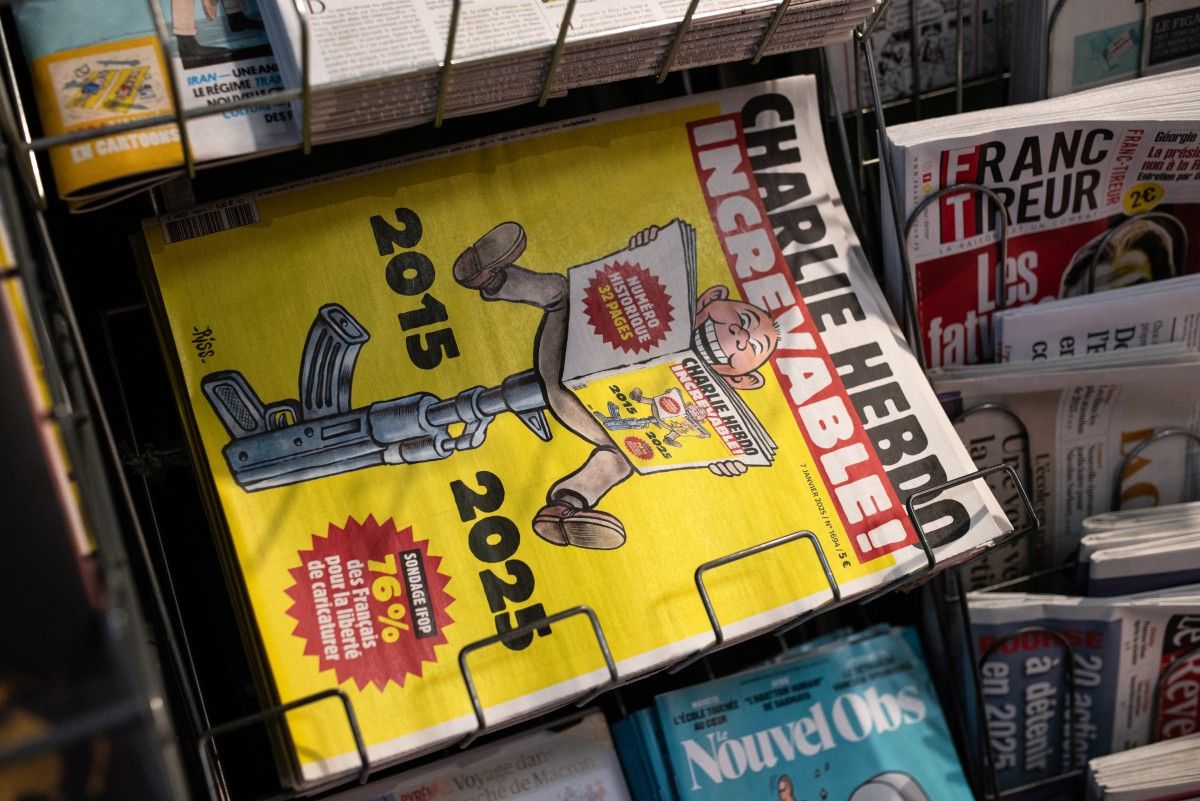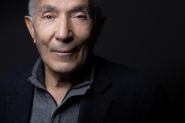
Ten years after the devastating 2015 terrorist attack, Charlie Hebdo continues to champion free speech and resist all forms of obscurantism through bold satire. In a special anniversary issue, the newspaper reaffirms that humor remains its unwavering weapon in the fight for liberty.
On January 7, 2015, a devastating terrorist attack struck Charlie Hebdo, killing twelve people, including eight members of the editorial team. Ten years after this tragic event, the satirical weekly, which survived the horrific massacre, continues to defend the values of free speech with the same vigor. In a special issue set to be published this Tuesday, the newspaper reaffirms that humor is its form of resistance.
“Unstoppable” in the Face of Threats
In a “historic” 32-page edition, Charlie Hebdo declares itself “unstoppable,” with a symbolic caricature on the front cover: a reader, sitting on an assault rifle, eagerly devours this special issue. The message is clear: despite the threats, the attacks, and the tragedy, laughter remains an indispensable weapon.
“If we want to laugh, it means we want to live,” writes Riss, the editor of the newspaper, in the editorial accompanying this issue. “Laughter, irony, and caricature are expressions of optimism,” he continues, explaining that satire remains a shield against tragedy, whatever its form may be.
Riss reflects on the past ten years, marked by an increasingly tense geopolitical situation. For him, Charlie Hebdo's values—humor, free speech, secularism, feminism, and ecology—are now more than ever under attack, sometimes even by obscurantist forces that threaten the very foundations of democracy.
“I Am Charlie”
The 2015 attack claimed twelve lives, including five of the newspaper's iconic cartoonists: Cabu, Charb, Honoré, Tignous, and Wolinski. Psychoanalyst Elsa Cayat, economist Bernard Maris, and proofreader Mustapha Ourrad were also among the victims. In the aftermath of the attack, France and the world united under the slogan "Je suis Charlie," signaling massive support for freedom of expression.
Millions of people took to the streets during the January 11, 2015, marches, with many foreign heads of state in attendance.
Ten years later, Charlie Hebdo remains true to its principles. The 2015 attack did not extinguish its spirit; on the contrary, it has energized its fight for the right to caricature and denounce all forms of obscurantism, whether religious or political. In its special issue, the newspaper publishes a series of caricatures under the theme #RiredeDieu (Laughing at God), an initiative launched in late 2024 through an international drawing competition.
A Fundamental Right
Among the 350 submissions received, nearly 40 were selected, boldly addressing religious topics and their impact on individual freedoms. This special issue also serves to highlight the results of a study conducted by Ifop for the Jean-Jaurès Foundation in June 2024, which revealed that 76% of French people consider “freedom of expression a fundamental right,” and that “the freedom to caricature is part of it,” while 62% support the “right to outrageously criticize a belief, symbol, or religious dogma.”
For the commemoration of January 7, 2025, a ceremony will take place in Paris, with President Emmanuel Macron, ministers, and Paris Mayor Anne Hidalgo in attendance. It will begin in the 11th arrondissement, where Charlie Hebdo's offices were located in 2015, and proceed to Boulevard Richard Lenoir, where police officer Ahmed Merabet was killed. The tribute will conclude with a moment of remembrance for the victims of the Hyper Cacher, killed during a hostage-taking two days after the attack on the newspaper.
A Minute of Dance
Since the Charlie Hebdo attack in 2015, choreographer Nadia Vadori-Gauthier has launched an initiative: One Minute of Dance per Day. A "poetic act of resistance," as she describes it, it has become an ongoing work, with over 3,600 videos published. "On January 7, 2015, after the shock and the stupor, I asked myself what I could initiate to bring life back," Vadori-Gauthier told AFP. The performance, which has evolved over time, includes interventions in various locations and collective participations, such as during the lockdown, when she received thousands of videos. The project will conclude on January 14, with the publication of a book documenting these ten years of artistic and personal journey.
While the memory of January 7, 2015, remains strong, Charlie Hebdo continues to carry on, against all odds, the spirit of resistance and freedom that has defined it since its inception.
With AFP



Comments